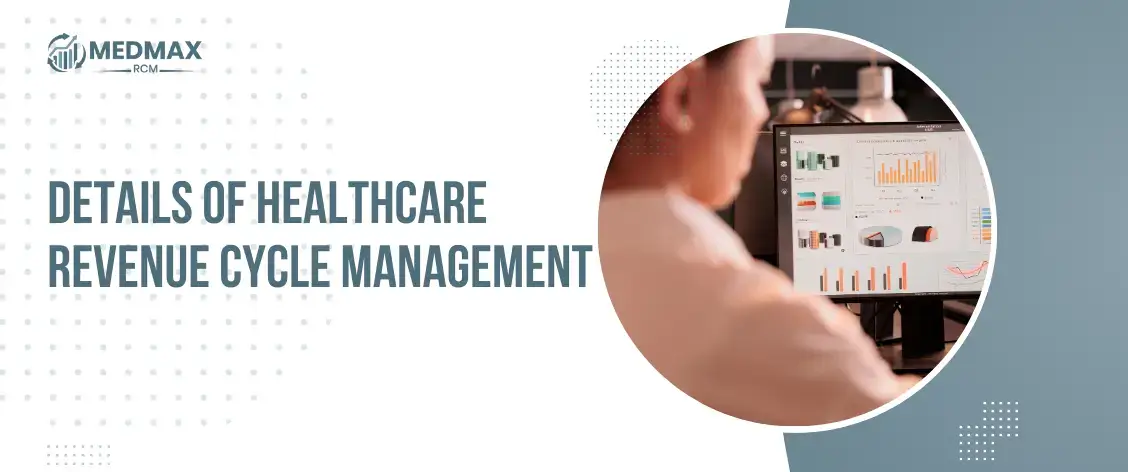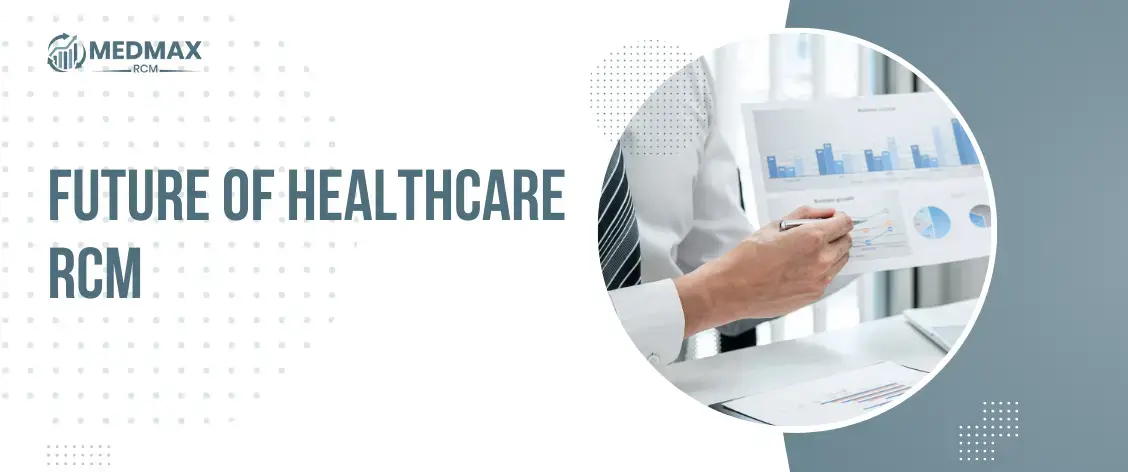
Advantages of Hiring a Revenue Cycle Management Company
Table of Contents
ToggleUnderstanding the Revenue Cycle Management Process
Revenue cycle management is a critical process for healthcare organizations that involves overseeing the financial aspects of patient care, from pre-service to payment. A revenue cycle management company provides a comprehensive solution for streamlining the Revenue management process. The key components of the process include patient demographic information, claims management, insurance verification, payment posting, and denials management.
An effective process can significantly reduce the cost of healthcare, improve financial performance, and enhance the patient experience. However, the process can be complex and challenging, and organizations must overcome common obstacles such as inaccurate patient information, claims management issues, and insurance verification problems.
The Importance of Accurate Patient Demographic Information
Accurate patient demographic information is a crucial component of the process and must be collected and verified prior to the start of patient care. A revenue cycle management company can help healthcare organizations streamline this process. Best practices for collecting and verifying patient information include using electronic health records, implementing data validation protocols, and verifying information at the point of care.
The use of technology can significantly improve the accuracy and efficiency of patient data collection. Inaccurate patient information can lead to delayed or denied claims, decreased revenue, and decreased patient satisfaction. An effective revenue cycle management company has a process that includes accurate patient demographic information is essential for improving financial performance and enhancing the patient experience.
Streamlining the Claims Management Process
The claims management process is an essential component of the process that involves submitting claims to insurance providers and ensuring timely payment. A revenue cycle management company can help healthcare organizations streamline this process. The key steps in the claims management process include coding and billing, submitting claims, and resolving denied claims.
Common challenges in the claims management process include denied claims, delayed payments, and incorrect coding. Real-time claims processing is essential for ensuring timely payment and reducing the cost of healthcare. Integrating technology in the claims management process can improve the accuracy and efficiency of the claims management process.
Enhancing Insurance Verification and Authorization
Insurance verification and authorization is a crucial step in the revenue cycle management company that involves determining patient eligibility for insurance coverage and obtaining pre-authorization for patient care. A company can help healthcare organizations enhance this process. Accurate insurance verification is essential for ensuring timely payment and reducing the cost of healthcare.
Common insurance verification challenges include verifying patient coverage, obtaining pre-authorization for services, and navigating the insurance approval process. Best practices for insurance authorization include using technology to automate the process, maintaining accurate patient insurance information, and verifying insurance coverage at the point of care.
Improving Payment Posting and Reconciliation
Payment posting and reconciliation is an essential step in the revenue cycle management company that involves updating patient accounts with payment information and reconciling payments. A company can help healthcare organizations improve this process. The key steps in payment posting and reconciliation include posting payments, reconciling payments, and updating patient accounts.
Common payment posting challenges include delayed payments, incorrect payment amounts, and reconciliation errors. Accurate payment posting is essential for ensuring that patient accounts are accurate and up-to-date. Best practices for payment reconciliation include using technology to automate the process, reconciling payments in a timely manner, and maintaining accurate payment information.
Managing Denials and Appeals Effectively
Denials management is an important aspect of the revenue cycle management company that involves resolving denied claims and appealing denials when necessary. A company can help healthcare organizations manage denials effectively. A denial in refers to a claim that is rejected by an insurance provider. Common reasons for denied claims include incorrect coding, missing information, and lack of pre-authorization. The appeals process involves submitting a request to the insurance provider to reconsider the denied claim.
A revenue cycle management company can assist in preparing and submitting appeals and providing guidance on the appeals process. Effective denials management is essential for reducing the cost of healthcare and improving financial performance. Best practices for denials management include using technology to track denied claims, analyzing denied claims data, and preparing and submitting appeals in a timely manner.
Streamlining Accounts Receivable Management
Accounts receivable management is a critical component of the process that involves ensuring that payments are collected and reconciled in a timely manner. A revenue cycle management company can help healthcare organizations streamline this process. The key steps in accounts receivable management include coding and billing, submitting claims, reconciling payments, and managing denials.
Common challenges in accounts receivable management include delayed payments, denied claims, and reconciliation errors. Effective accounts receivable management is essential for improving financial performance and reducing the cost of healthcare. Best practices for accounts receivable management include using technology to automate the process, reconciling payments in a timely manner, and managing denied claims effectively.
Integrating Technology in the Process
Integrating technology in the process is essential for improving efficiency and accuracy. A revenue cycle management company can help healthcare organizations integrate technology in the process. The use of technology in the process can help automate various steps such as insurance verification, claims management, payment posting, and denials management.
Additionally, technology can help improve data accuracy and provide real-time data analysis. Effective technology integration is essential for improving financial performance and reducing the cost of healthcare. Best practices for technology integration include selecting the right technology, integrating technology in a timely manner, and providing training and support to staff.
Reducing the Cost of Healthcare
Reducing the cost of healthcare is a critical goal for healthcare organizations and is closely linked to the process. A revenue cycle management company can help healthcare organizations reduce the cost of healthcare. Effective can significantly reduce the cost of healthcare by streamlining the process, reducing denied claims, improving payment collection, and managing denials effectively. Additionally, integrating technology in the process can improve efficiency and accuracy, which can further reduce the cost of healthcare.
Enhancing the Patient Experience
Enhancing the patient experience is an important goal for healthcare organizations and is closely linked to the process. A revenue cycle management company can help healthcare organizations enhance the patient experience. Effective can significantly enhance the patient experience by providing accurate and timely billing information, reducing the number of denied claims, improving payment collection, and ensuring that patients receive the care they need. Additionally, the use of technology in the process can provide patients with real-time information and improve overall communication and transparency.
Revenue Cycle Management Company:
In conclusion, revenue management company is a crucial aspect of the healthcare industry, and effective company can lead to improved financial performance, enhanced patient experience, and compliance with healthcare regulations. To achieve success in revenue cycle management company, it is essential to understand the key components of the process, including the importance of accurate patient demographic information, streamlining the claims management process, and improving payment posting and reconciliation. Effective denials and appeals management and the integration of technology are also key components of successful RCM.
In addition, effective staffing and training, as well as continuous monitoring and analysis of revenue metrics, are critical components of revenue management success. It is also essential to stay ahead of the ever-evolving industry and to stay current with regulations and trends. By following these best practices, healthcare organizations can optimize their process and improve overall financial performance.
In conclusion, the revenue cycle management company has some process that is a crucial component of the healthcare industry, and effective company can lead to improved financial performance, enhanced patient experience, and compliance with healthcare regulations. By understanding the key components of RCM, incorporating technology, and following best practices for staffing and training, healthcare organizations can optimize their RCM process and achieve success.

Related Posts
Williams Clark
Williams Clark is a dual-certified healthcare professional with CPC and CHC credentials. With over a decade of experience in medical billing and compliance auditing, David provides deep insights into payer policies, denial prevention, and accurate coding practices. His mission is to empower medical billers and healthcare providers with the knowledge to stay compliant and profitable.






